Indigenous Conservation and Sustainable Use of Biodiversity
Launched in the second half of 2022, Transformative Pathways is a joint initiative led by indigenous organisations in five countries across Asia, Africa, and the Americas, and supported by a network of global partners.
The project directly supports collective actions towards self-determined land and resource governance, biodiversity conservation and sustainable livelihoods. It is co-developing community-owned biodiversity monitoring frameworks so that involved communities can collect, use, and present evidence, and demonstrate the outcomes of their actions. The project works with national governments and other key actors to develop mechanisms to allow full and equitable participation in national biodiversity-related policy and planning.
Our collective aim is to support improved conservation and sustainable use of biodiversity by promoting recognition, support, and expansion of the actions and contributions of indigenous peoples. This multi-year project is planned to run for 6 years, from 2022 to 2028.
As this action is carefully designed to complement and engage with wider networks, we expect the impacts from project activities to extend well beyond both the project period and the countries involved.
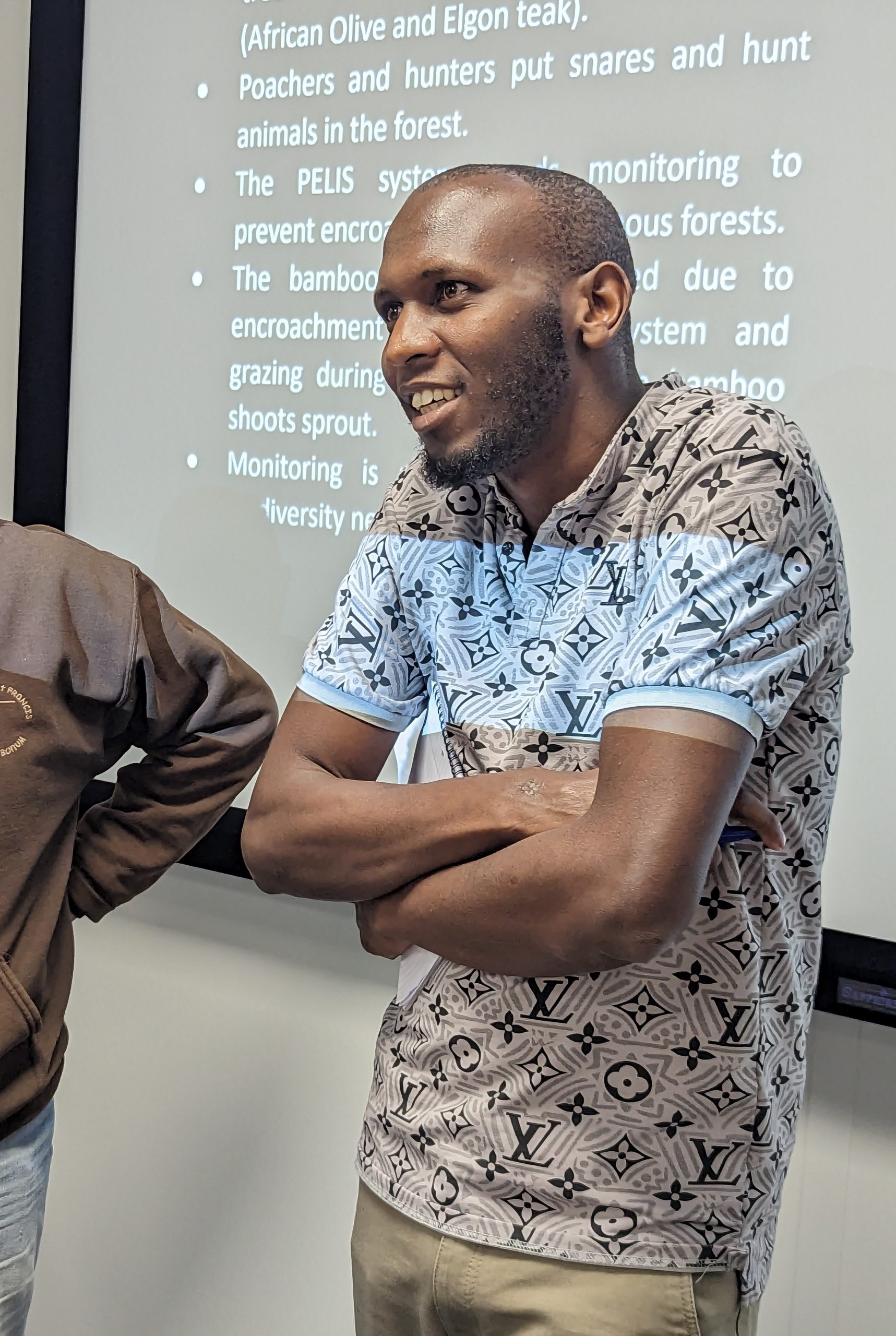
Elijah Kitelo (CIPDP, Kenya) at the University of Oxford delivering a workshop on biodiversity monitoring protocols, part of the Transformative Pathways project. Photo by Frances Jenner/FPP.
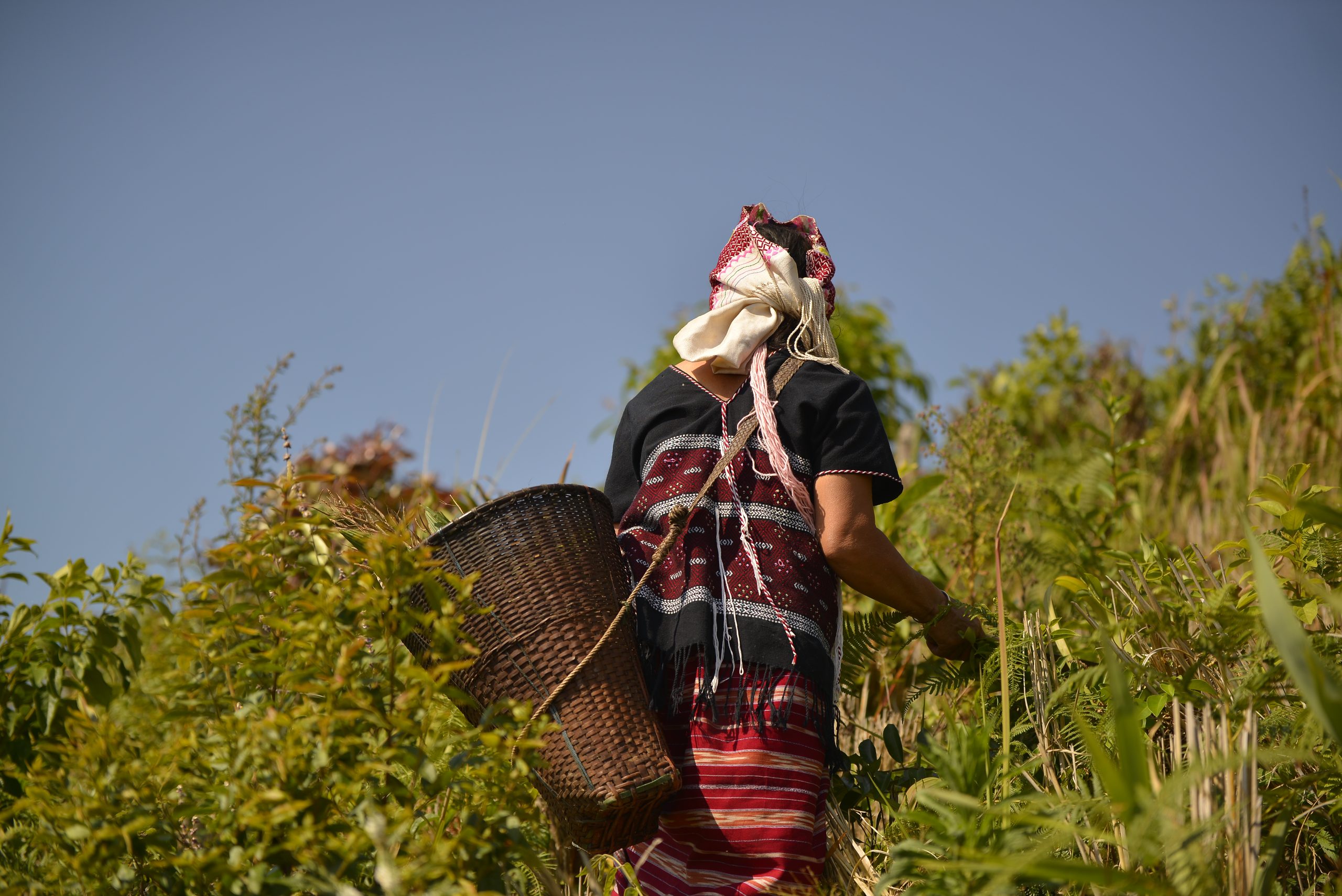
A Karen Indigenous Woman collects vegetables for her family members in the rotational farming field of Mae Yod village. Rotational farming is the cultural heritage of Karen Indigenous Peoples that not only ensures food security and well being of community members but also contributes to the conservation and enhancement of biodiversity. Mae Yod village is in Chiang Mai Province of Thailand. Photo by Lakpa Nuri Sherpa/Asia Indigenous Peoples Pact (AIPP).
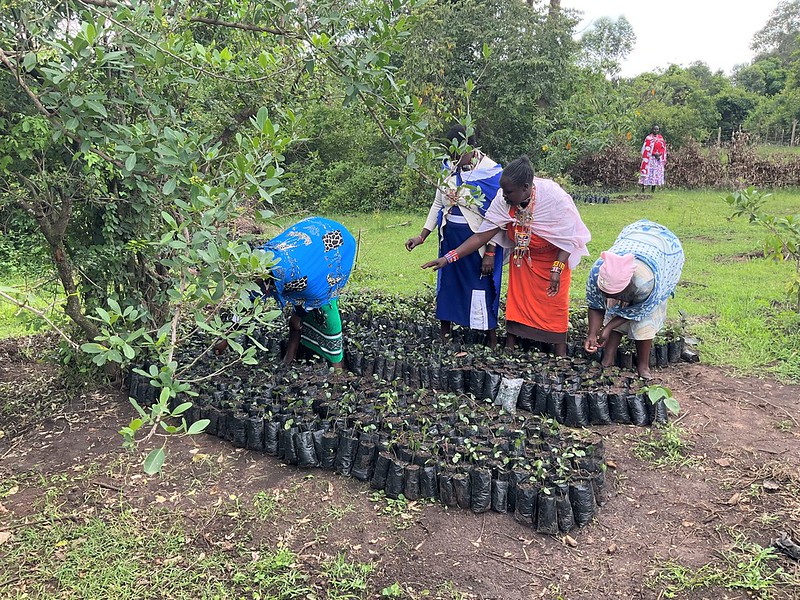
Maasai Indigenous women carrying out restoration activity by nurturing their tree nursery in Transmara. Photo by Indigenous Information Network (IIN)
Outcome
The project aims to achieve the recognition, support and scaling up of biodiversity conservation and sustainable use by indigenous peoples and local communities by:
- strengthening land and resource governance at the territory level;
- improving enabling conditions to recognize indigenous and local knowledge at the national level;
- establishing or strengthening partnerships for participation in biodiversity planning and monitoring at the local, national and global levels, including CBD processes
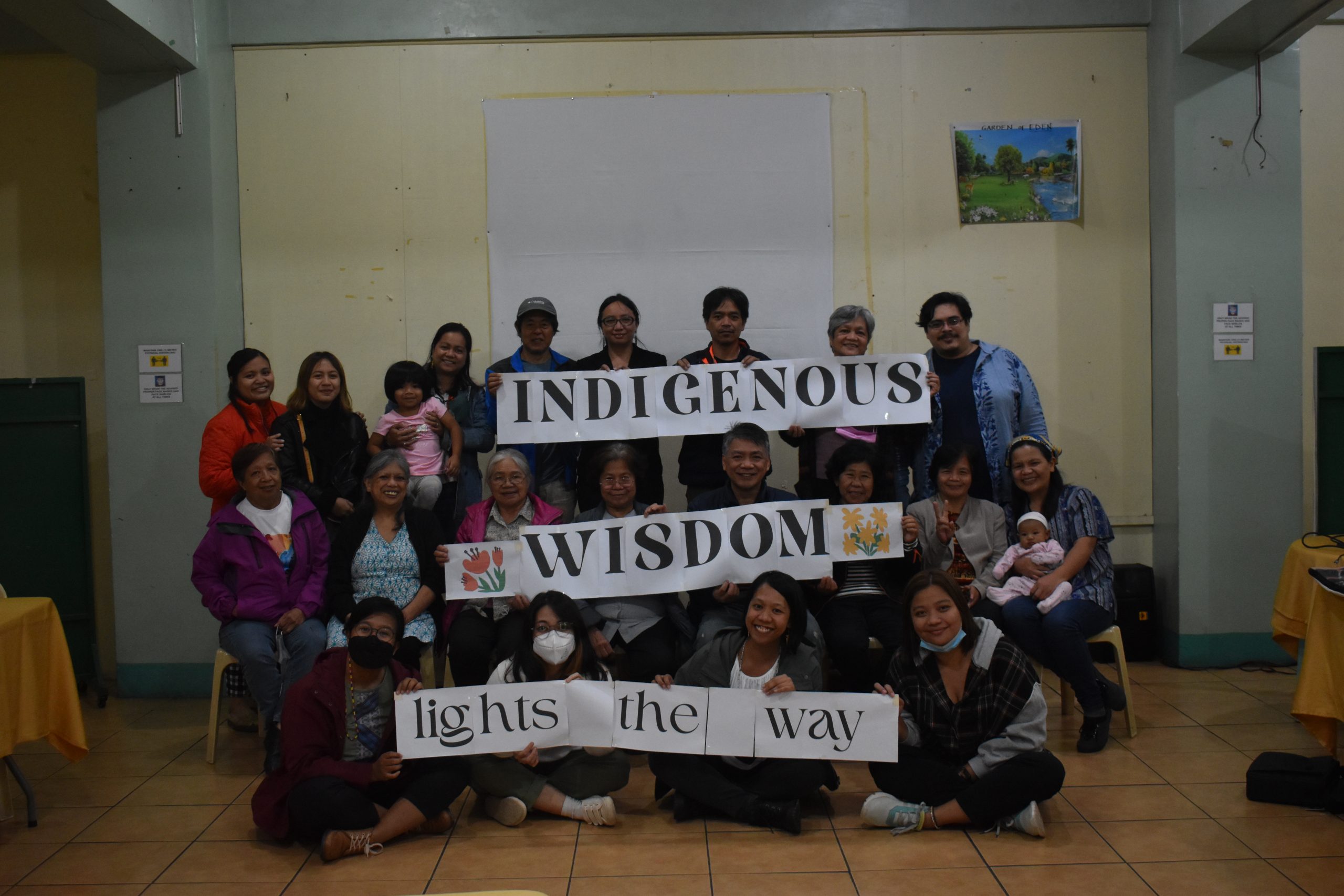
PIKP staff and partners hold up together a sign saying ‘Indigenous Wisdom Lights the Way’ after successfully completing the inception workshop for the Transformative Pathways project held in Baguio City, Philippines. Photo by PIKP
Background
Indigenous peoples and local communities conserve a significant amount of the Earth’s biodiversity through their cultural practices, especially where their rights over their traditional lands, waters, resources, and knowledge are recognised and respected. Their lands cover at least a quarter of the globe and overlap significantly with biodiversity-rich areas.
However, their current and potential contributions to the conservation and sustainable use of biodiversity are not sufficiently recognised or supported despite being crucial to the fulfilment of the UN Convention on Biological Diversity (CBD) and to addressing global biodiversity and climate goals.
There is enormous potential to scale up support for these contributions and to embed them into the post-2020 global biodiversity framework.
This project recognises this and works with established, engaged networks of indigenous peoples’ organisations and allies to address the biodiversity crisis more effectively, at the local, sub-national, national, and global levels. Working with governments in Peru, Kenya, the Philippines, and Thailand, we recognise that sustained change requires further development and implementation of national laws and policies, as well as support from institutional mechanisms at all levels.
Working with national partners and global collaborators, the project aims to drive influence in global policy spaces. It targets monitoring and reporting within the UN CBD and reporting and analysis within the Intergovernmental Science-Policy Platform on Biodiversity and Ecosystem Services (IPBES), in particular to embed the contributions of Indigenous Peoples and Local Communities within these processes.
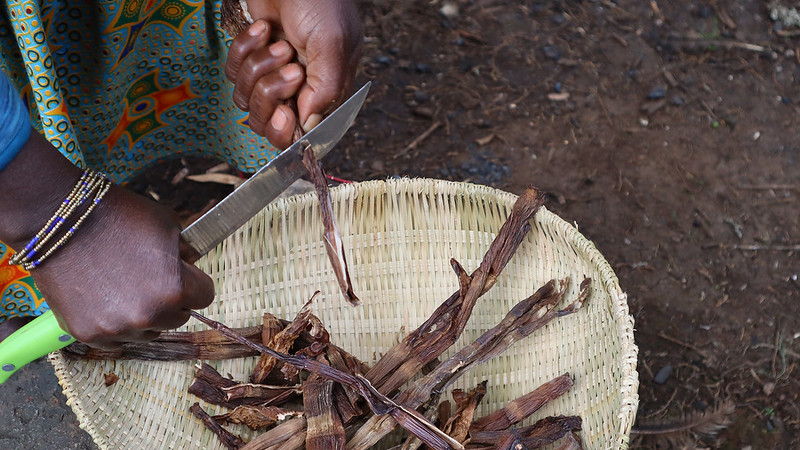
Preparation of bamboo shoots which are a source of food. Photo by Mutai/CIPDP
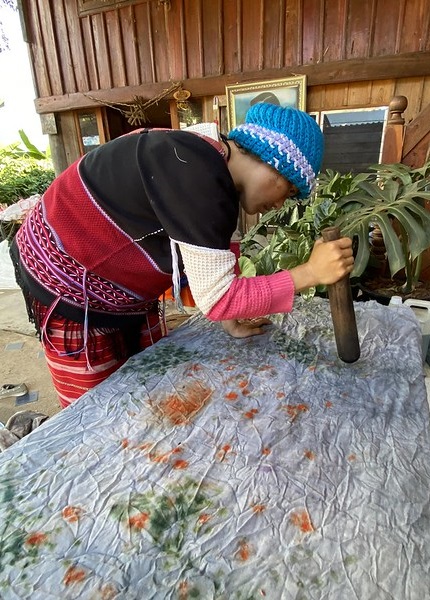
Discovering the art of natural dyeing in Huai E Kang. Photo by Sunaree/PASD.
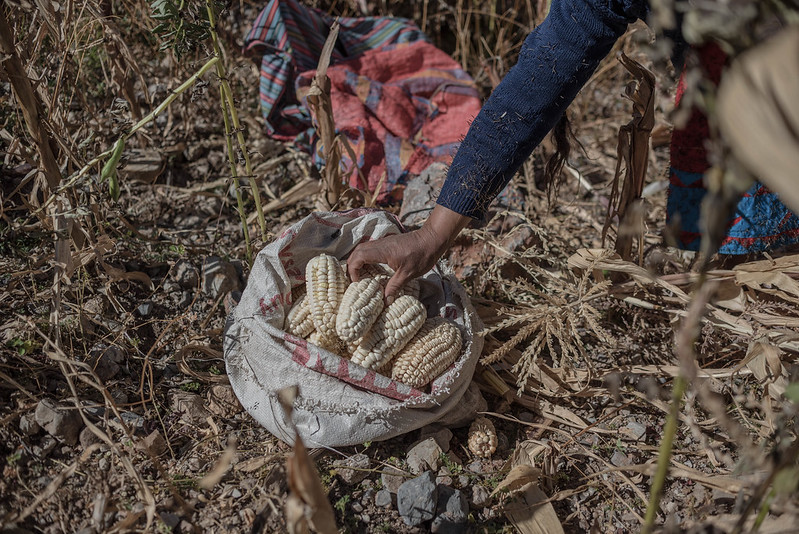
Maize harvest is packed in sacks for transport, drying and storage. Community of Hualla, Hualla district, Victor Fajardo province, Ayacucho region, Peru. Photo by Luisenrrique Becerra Velarde / CHIRAPAQ.
Related Projects
Local Biodiversity Outlooks documents the contributions of Indigenous Peoples and local communities to the global conservation and sustainable use of biodiversity, as a complementary report to CBD’s flagship publication, Global Biodiversity Outlook.
Whereas the Global Biodiversity Outlook focuses on the status and trends of biodiversity, the Local Biodiversity Outlooks highlights the role of indigenous peoples and local communities in conserving and protecting this biodiversity.
Local Biodiversity Outlooks is a joint publication by the International Indigenous Forum on Biodiversity (IIFB), International Women’s Biodiversity Network (IWBN), the Centres of Distinction on Indigenous and Local Knowledge (COD-ILK), Forest Peoples Programme (FPP) and the Secretariat of the CBD (SCBD).
Related Networks
The International Indigenous Forum on Biodiversity (IIFB) is a collection of representatives from indigenous governments, indigenous non-governmental organizations and indigenous scholars and activists that organize around the Convention on Biological Diversity (CBD) and other important international environmental meetings to help coordinate indigenous strategies at these meetings, provide advice to the government parties, and influence the interpretation of government obligations to recognize and respect indigenous rights to the knowledge and resources.
See other related networks:
“Only by recognizing the rights, knowledge, innovations, and values of Indigenous Peoples and Local Communities will we be able to push forward the global agenda to sustainably use and conserve biodiversity.”
Lakpa Nuri Sherpa, IIFB Co-Chair and programme lead at AIPP
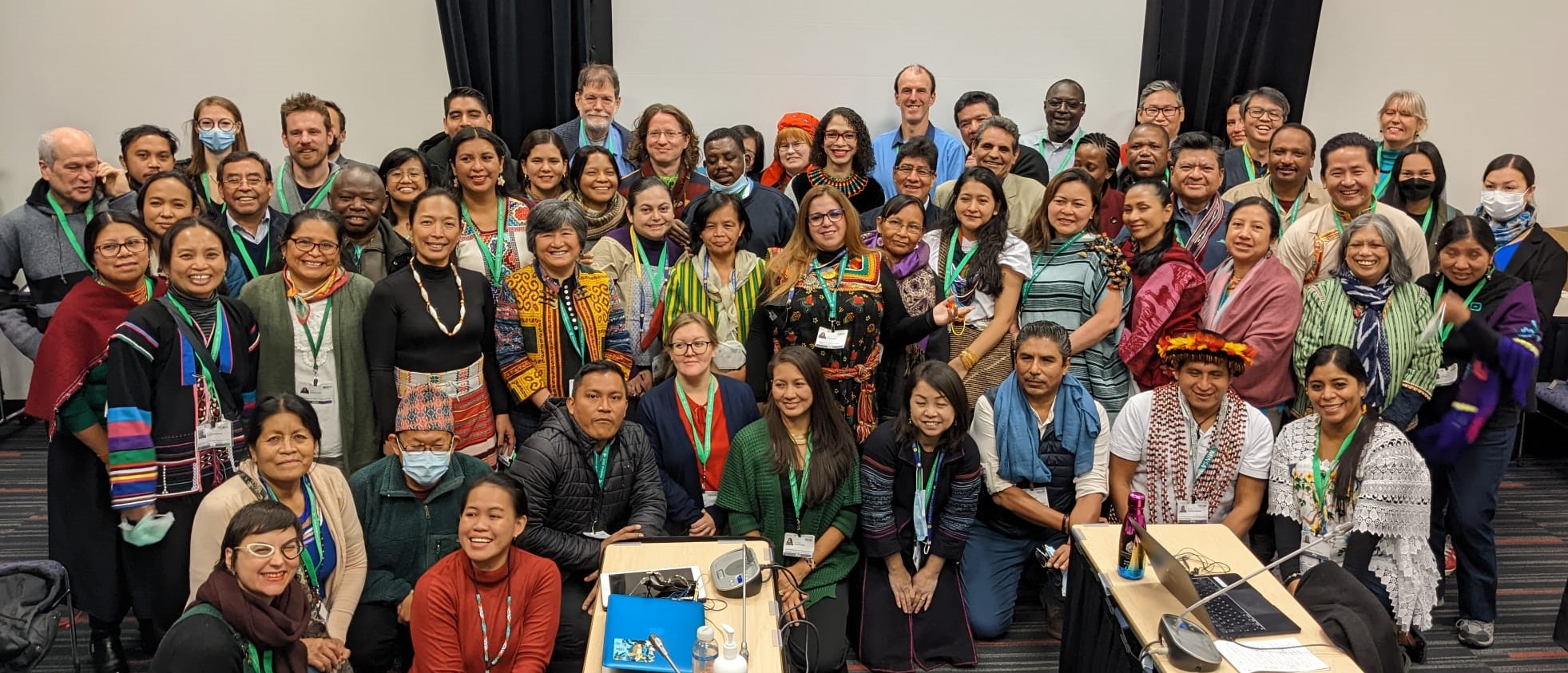
IIFB Indigenous caucus at COP15 in Montreal, Canada. Photo by Tom Dixon/FPP.
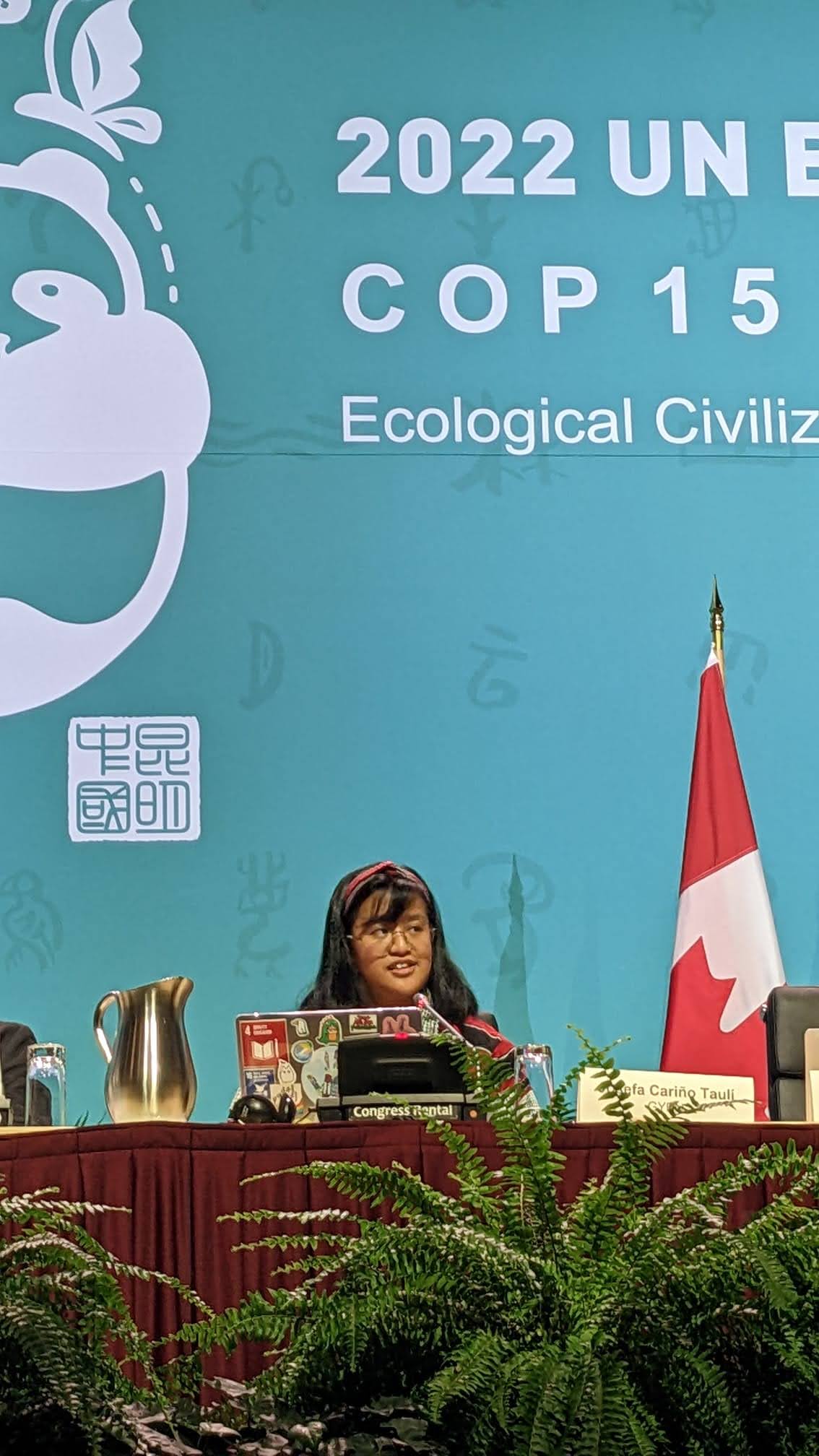
Josefa Cariño Tauli of the Global Youth Biodiversity Network speaks at the COP15 Nature and Culture Summit about the importance of addressing the loss of cultural diversity to address biodiversity loss. Photo by Tom Dixon/FPP.
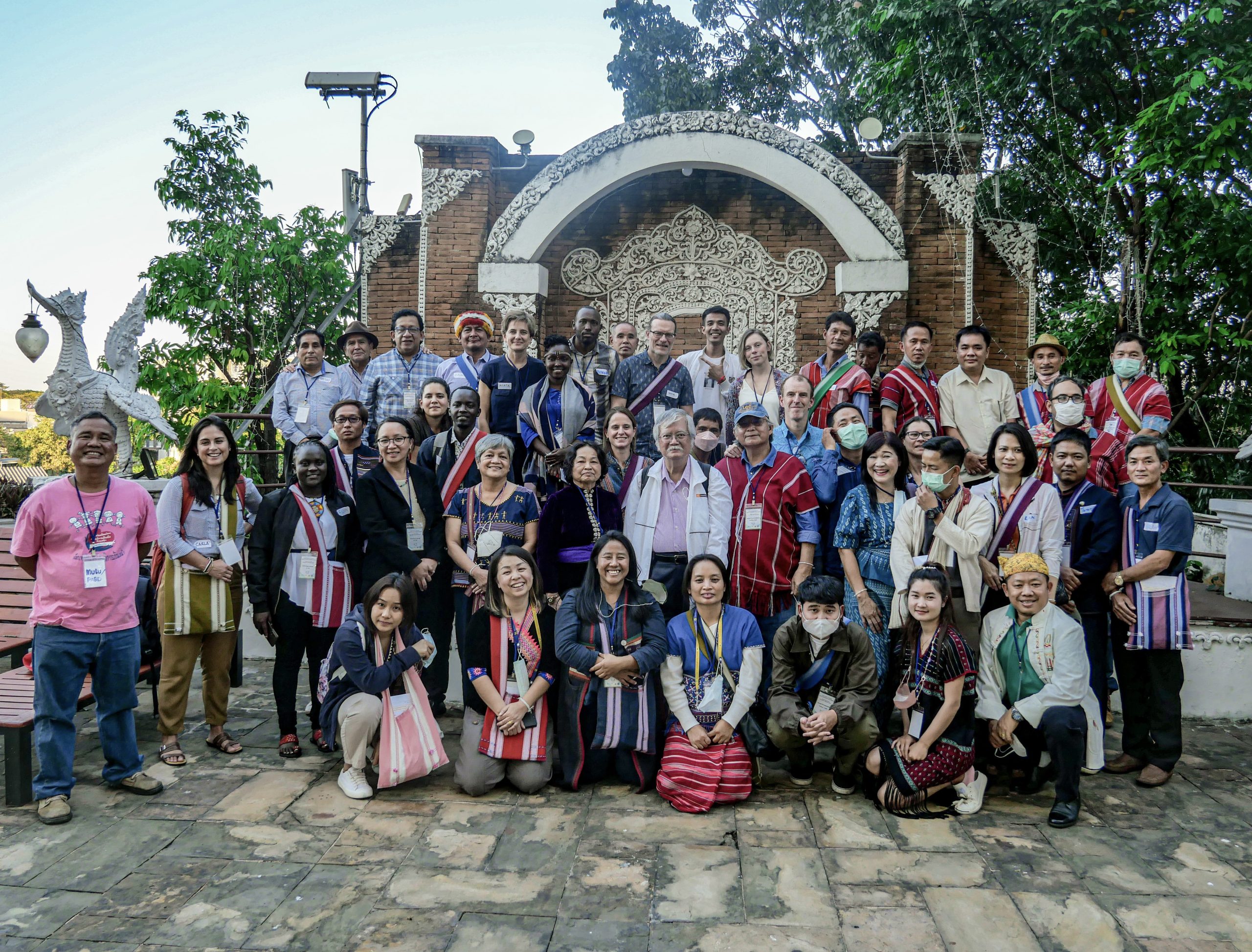
The Transformative Pathways consortium partners at the first in-person meeting of the project in February 2023, Thailand.
Acknowledgement
Funding for The Transformative Pathways project is provided by the German Federal Ministry for the Environment, Nature Conservation, Nuclear Safety and Consumer Protection (BMUV) through the International Climate Initiative (Internationale Klimaschutzinitiative; IKI).